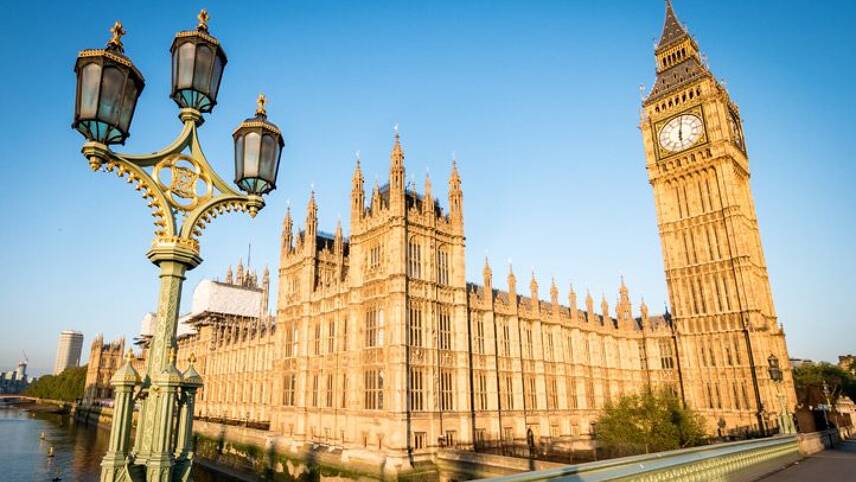Register for free and continue reading
Join our growing army of changemakers and get unlimited access to our premium content

The Aldersgate Group believes that the net-zero target could bolster opportunities for UK businesses
That is one of the key findings of two new reports released today (4 April) by the Aldersgate Group. Published with research from Vivid Economics and the UK Energy Research Centre, the reports explore the opportunities and requirements of setting a net-zero emissions target for the UK.
Late last year, The UK Government has confirmed that it is seeking advice from the Committee on Climate Change (CCC) to provide updates on how the UK’s long-term emissions targets should be altered to account for a net-zero target. The report calls on the Government to set the net-zero target as soon as possible after the advice is published.
With the CCC’s advice set to published shortly, the Aldersgate Group’s two reports outline key recommendations that should be explored when setting the new climate target. The recommendations focus on how the net-zero target could unlock innovation and spur business progress towards widescale decarbonisation across the UK.
Specifically, the reports call for a consideration of how infrastructure being developed today will be impacted by any net-zero target.
“To achieve net zero emissions requires the UK to firstly significantly accelerate the action it is already taking in areas such as the power sector and buildings to achieve the 80% target,” the report states.
“Secondly, the UK must rapidly tackle more complex areas to decarbonise, such as heavy industry, long-distance transport and agriculture. Infrastructure designed today will have lifecycles of 20 years and upwards, so a net zero target needs to be set in the near future to help businesses invest cost-effectively and avoid locking in emissions.”
CCS scope
The Aldersgate Group believes that the net-zero target could bolster opportunities for UK businesses, provided that “ambitious” innovation policies and market creation measures are introduced that are “informed by a clear understanding of lifecycle emissions”.
Carbon capture and storage (CCS) was highlighted as one technology that could be accelerated at scale and the report calls on the government to “move beyond the fear of failure” to trial potentially transformation technologies, with hydrogen also noted for its low-carbon credentials.
Currently, the Business, Energy and Industrial Strategy (BEIS) Committee has launched an inquiry into the role CCS will play in helping the UK meet its 2050 goal of reducing greenhouse gas emissions by 80%, against a 1990 baseline. Research has suggested that CCS could boost the UK economy by more than £160bn.
The Aldersgate Group’s executive director, Nick Molho, said: “Businesses want to see the government’s innovation policy move beyond the ‘fear of failure’ and trial critical technologies such as CCS and hydrogen at scale in order to inform key policy decisions in areas such as heat and industrial decarbonisation.
“Support for innovation must be combined with measures informed by lifecycle emissions, such as markets standards, to grow the demand for ultra-low carbon infrastructure, products and services and set a market level playing field in the process.”
The UK is not on track to meet its final two carbon budgets. The reports claim that “low-regret policy options” must be included to create a cost-effective route for decarbonisation and to meet net-zero emissions. Recommendations include significantly improving energy efficiency in buildings through financial incentives and binding regulatory standards and accelerating the roll-out of zero-emission vehicles in the 2020s through tougher emission standards and more plug-in grants.
On the latter point, the CCC has warned ministers that the new Road to Zero transport strategy will not be sufficient to meet national and international climate targets.
Matt Mace


No point in developing something just because it sounds "green" when the overall net impact might be huge. Biomass is a case in point. When you factor in the volume of fuel oil used to ship wood pellets across the Atlantic just to burn them in a power station it sounds "green" but add in the hundreds of cubic metres of oil and suddenly it’s not.
A cubic meter of concrete is a tonne of CO2, do we factor that into the green credentials of wind turbines? Add in the CO2 released when you dig up peat moorland and it is even worse.
Hydrogen sounds green as the resultant waste product is water and you can reuse that to make more but water vapour is even more potent as a greenhouse gas than CO2, so burning H2 in central heating systems might actually make things worse than burning CH4. Especially if to make the H2 you crack CH4.
At the end of the day the equation has got to add up and result in as low an impact as reasonably practicable. Sometimes that may mean the low carbon option might actually be what we are doing right now but with a minor tweak to improve the efficiency.